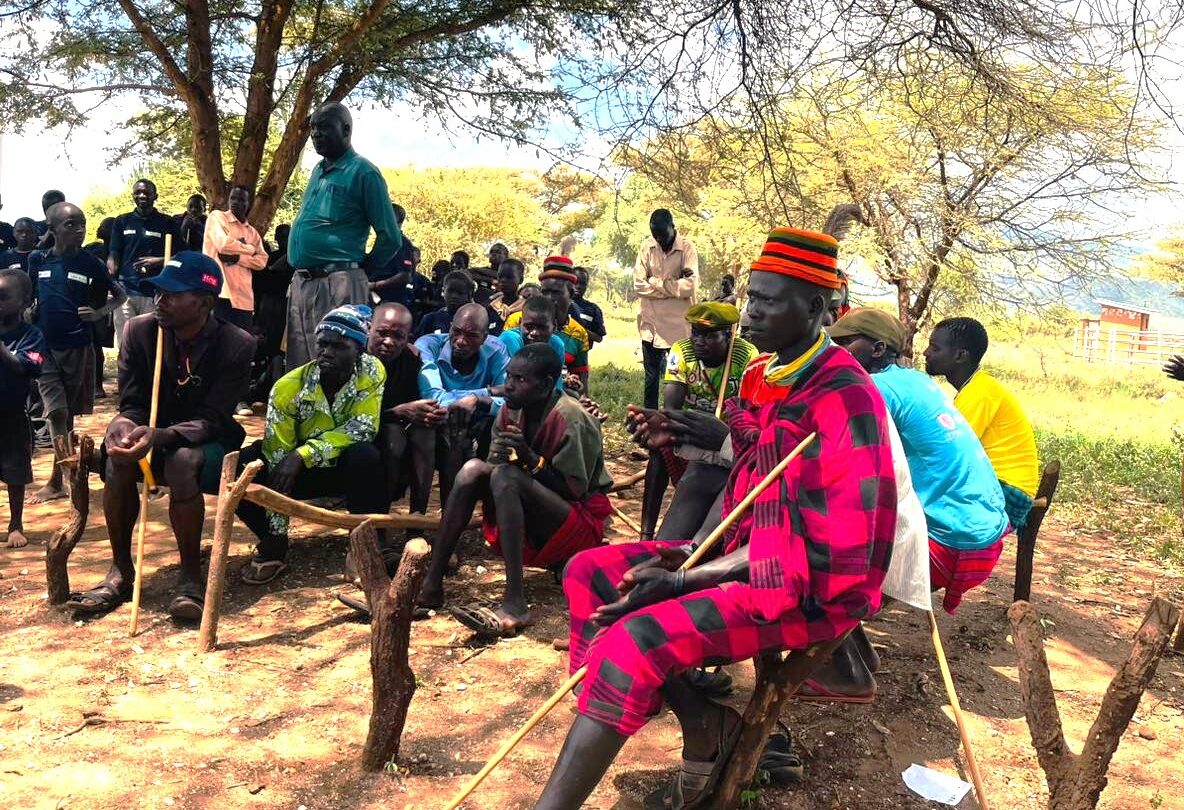Setting up strong partnerships to eliminate child labour
Karamoja occupies the eastern area of the north of Uganda and is one of Uganda’s poorest regions, with income poverty at 61% and food poverty at 70% (UNHS, 2016/17).
The four WNCB partners in Karamoja, Uganda, set up a strong partnership and work, together with communities and government, towards strengthening access to education and social norm change to get children out of work and into school. The WNCB partners started their cooperation in 2018 from zero. Karamoja is one of the poorest regions in Uganda with a lack of quality education and opportunities for youth. Out of 40 parishes in Karamoja, only 10 had a primary school.
This story shows the successes, challenges, key steps to take and lessons learned.
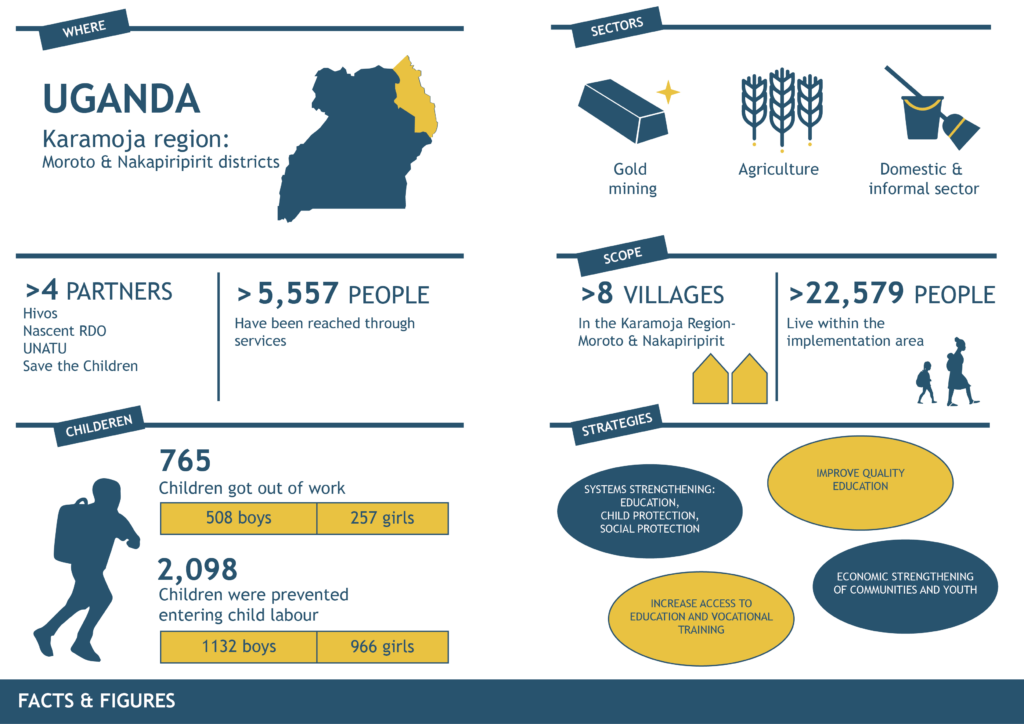
Background information
With a largely rural population, livelihoods in Karamoja are based on livestock and crop production. Other livelihood activities include gold mining, stone quarrying, and trading in agricultural produce with neighbouring districts. The Karamoja region suffers from the harsh climatic conditions and long-lasting draughts that lead to crop failure, economic hardship for farmers and food shortages for the population and their livestock. The region also experiences waves of cattle raids mainly fueled by revenge attacks among communities. Access to education is limited, with hardly any schools in some remote areas, and access to decent work for youth is absent. These factors result in low levels of education of household heads, high poverty levels in communities, limited livelihood opportunities and gender imbalances which shape resource ownership.
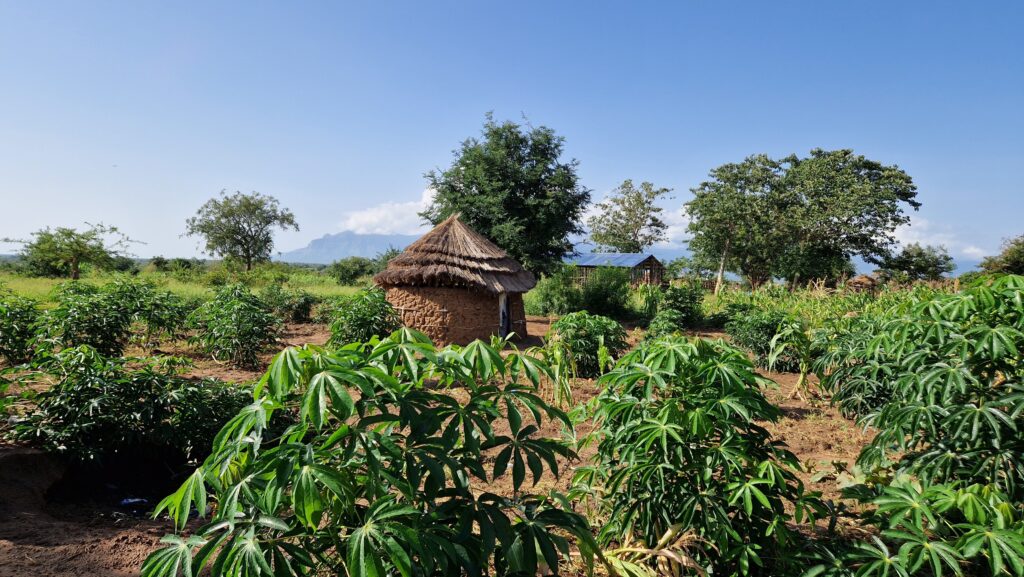
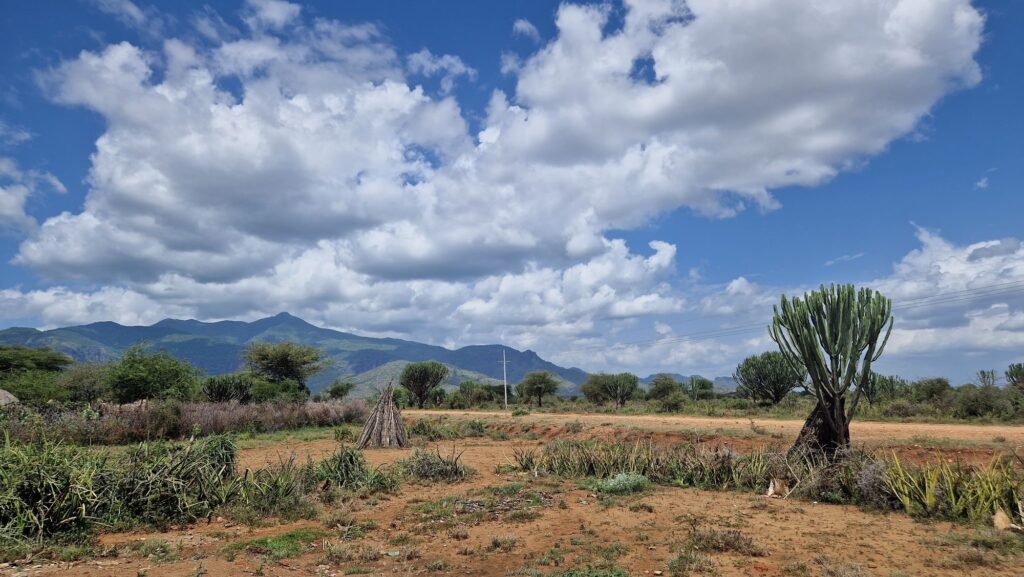
Challenges
Karamoja region has gone through many shocks and the difficulties for households to manage these shocks – insecurity, hunger, and economic /financial stress – have pushed many children to work and have led to child abuse, child marriages and trafficking. The 2-year lockdown and school closures, as a result of COVID-19, increased the number of children joining the workforce and school dropout.
Due to food shortages in the Nakapiripirit and Moroto districts of Karamoja children and women are greatly affected. Children between 5 and 17 years migrate from the villages in search of employment, most ending up on streets of the neighbouring towns, even Kampala and to Nairobi and other towns in Kenya, working in agriculture (especially cattle herding) and in gold mines.
Strategies
To work towards a social norm against all forms of child labour among all stakeholders – communities, governments and businesses – WNCB implements an area-based approach that goes hand in hand with a supply chain approach.
The story of the strong cooperation between the WNCB partners in Karamoja shows how working with the area-based approach proved to be a useful and successful approach in the specific context of this region. The many challenges in Karamoja need to be addressed at community level. And at the same time, the lack of quality education and opportunities for youth need to be tackled. Cooperation with the government, the communities, teachers and the private sector proved to be a successful approach in this challenging context, provided the partners a space to adjust elements in planning and action, and led to sustainable results.
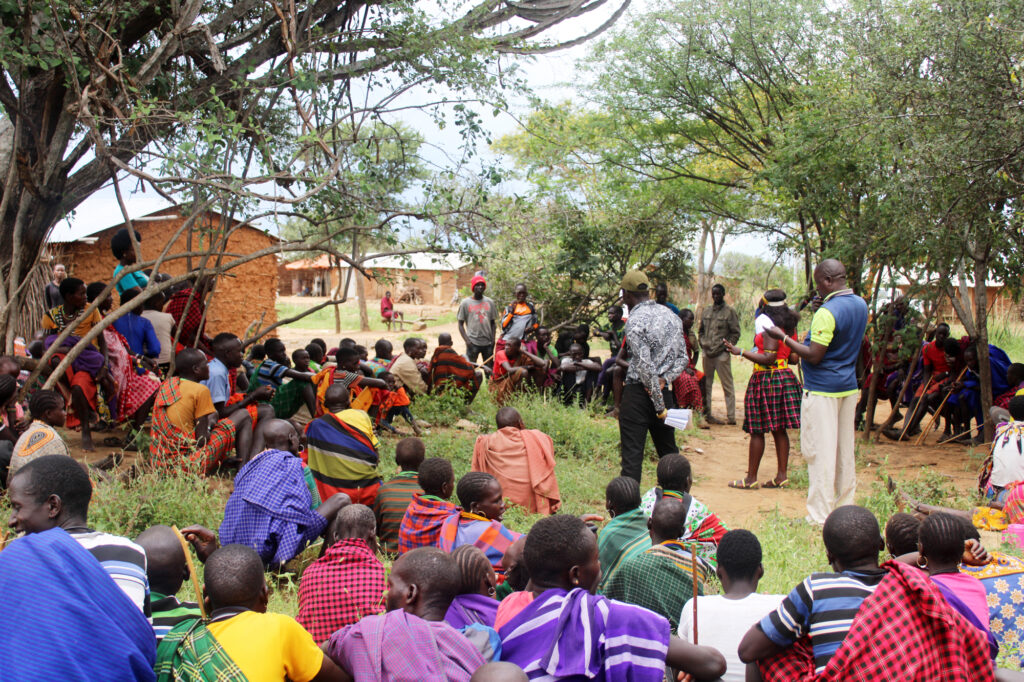
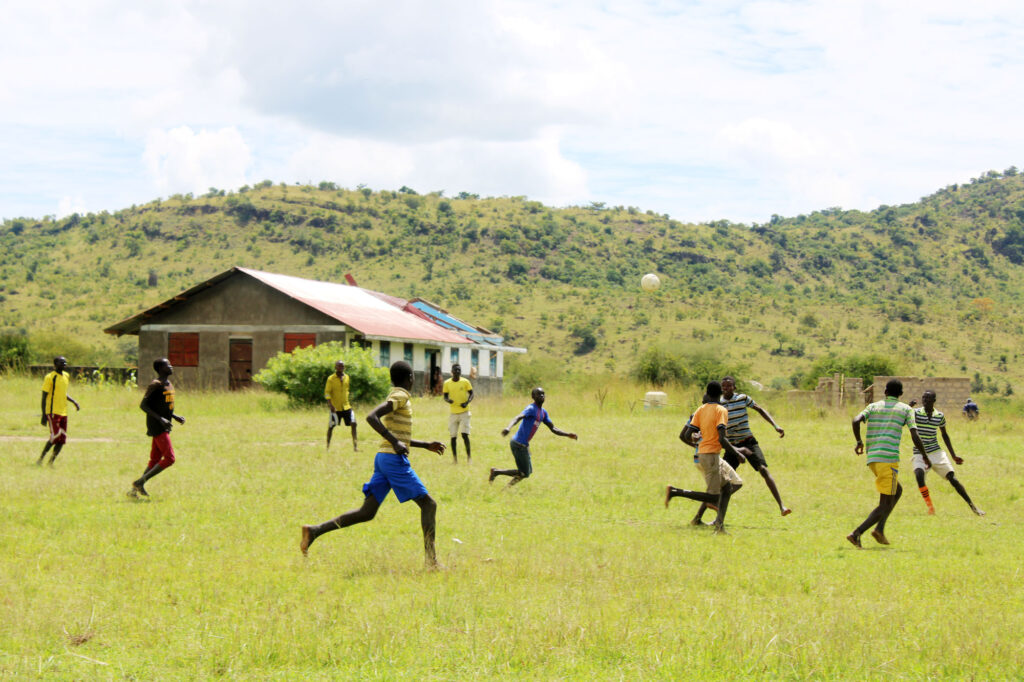
The strategies in working with communities involve activities to eliminate child labour, economic strengthening of families and youth, the strengthening of child protection systems, access to quality education and vocational training, and awareness-raising towards norm change. The partners in Uganda, led by Hivos at national level, cooperate with the different ministries on policies and by-laws to address the root causes of child labour.
Changes and successes
The work of the four collaborating partners in Karamoja is paying off. The partners started to work in Karamoja from zero. In some of the areas in Karamoja there were no schools and there was no educational or community support.
The school attendance rate of children increased by 31%. Motivational and learning centres have been set up to support children in their aspirations and future decent work, and are now that are being taken over by the local government. The norm around child labour in the communities is changing. The economic development of families and youth increased. The business sector is more accessible and involved.
‘Back to School’ campaigns, including radio talk shows, community dialogues and other channels, have reached 5,938 children in Karamoja. The awareness-raising has made a great contribution to changing attitudes and has enabled the rights holders to demand services from the government. WNCB partners in collaboration with the Ministry of Education & Sports disseminated the guidelines on the prevention and management of teenage pregnancy and re-entry of child mothers into school to 160 stakeholders. A number of child mothers re-joined school due to this.
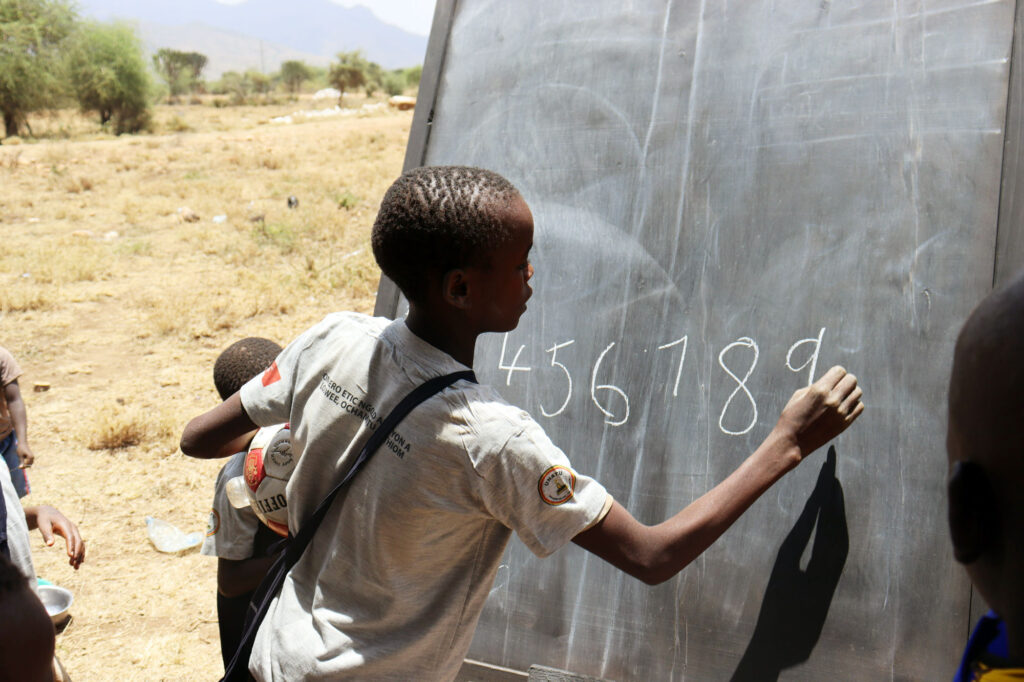
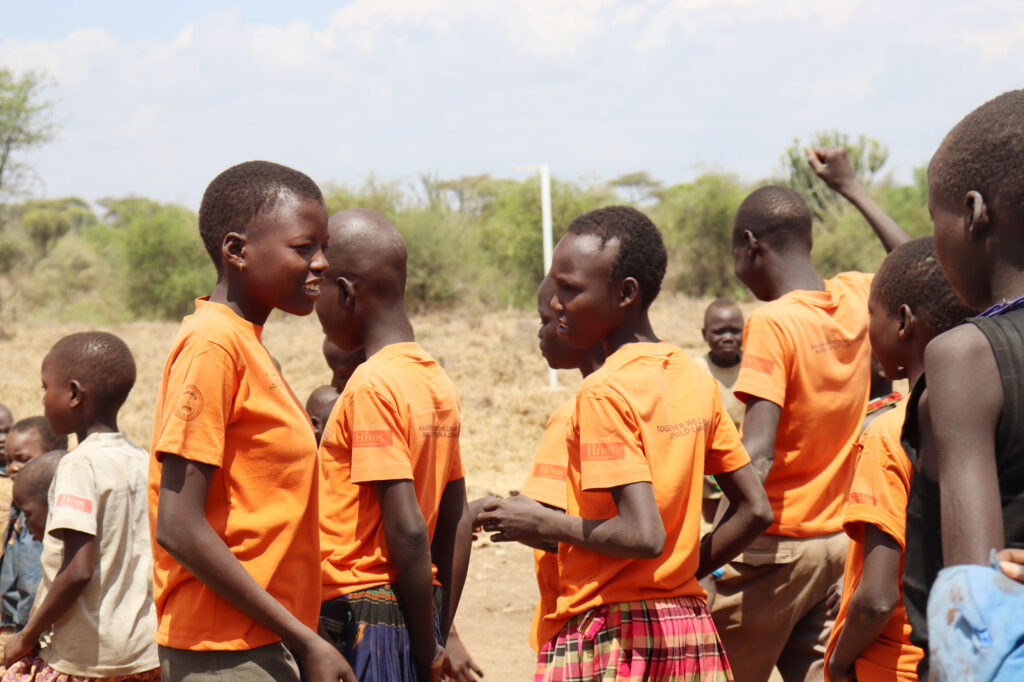
Next steps
The work of the WNCB partners in Karamoja is work in progress. Over the past decade, they have worked with different successful strategies that fit within the Karamoja context and that led to changes. And at the same time, they continuously need to adapt these strategies and respond to (new) challenges. Focus will be on continuing community engagement, increasing access to quality education, further engagement with governments, and increasing CRPB work.

